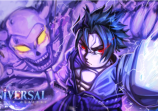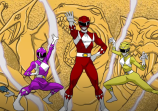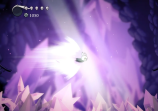This week saw the release of Outlast, a low cost, but visually impressive game from the indie development team Red Barrels. The game mixes stealth, having players hide in the shadows from the various ooky spookies that litter the halls and wards of a long abandoned mental asylum, always the perfect setting for a game whose designers want to make you lose control of your bowels as often as possible.
As far as content goes, Outlast has plentiful amounts of content that would make most major publishers not get within a city block of it - "intense violence, gore, graphic sexual content, and strong language." For an indie title, Outlast is visually stunning, and rightly so. The staff that makes up Red Barrels boast impressive resumes. Their work includes games like Uncharted, Assassin's Creed, Splinter Cell, Prince of Persia, Dead Space, and Army of Two.
Putting Red Barrels aside for a moment, we're seeing a rise of developers who, with or without such a background, are not only immensely talented, but know how to scare the ever loving goodness out of gamers, who are more than willing to gobble it up.
Before Outlast, a free-to-play game based on the Slenderman mythos took the Internet by storm called, The Eight Pages. Like Outlast, it was played from a first person perspective, where the protagonist was armed with only a flashlight, and whose single defense when confronted was to run. Run fast, and hard. The game caught enough attention that a full game was developed as a follow-up, Slender: The Arrival, and like its predecessor, it was terrifying, with new environments, and re-worked audio and visuals. The white noise, turning around to come face to "face" with the pale monolith clad in a pitch black suit...thinking about it still gives me chills. Even before Slender and Outlast, you had Amnesia: The Dark Descent, for which a sequel, A Machine for Pigs, is rapidly approaching.
You could argue that these games, much like some of the "mainstream" horror games, are also following a basic formula like many of the RE imitators (hello Dino Crisis); first person perspective, limited if any access to weapons, dim lighting, and having the player face terrifying creatures that seldom have a backstory, serving to make them that much more mysterious. But it's a formula that works consistently. The perspective is easily the best way to offer players the best experience, as they're seeing things from the protagonist's perspective. The lack of weapons also works in the genre's favor. Even though F.E.A.R. more or less pulled it off, it's hard to feel terrified when you're a walking-tank badass armed to the teeth with the latest in military hardware. But if you have to take on the enemy at all, most of these indie games will limit you to melee weapons only; ensuring the fight is up close and personal, the last place you'd ever want to be when confronting some otherworldly, demonic entity.
And of course, the prices are a delight. $20 for Outlast? Deal. $10 for Slender: The Arrival? Throw that in the cart, too. It's almost as if developers planned out a means to ensure you'd be able to buy new drawers.
I'd say the only problems are the games limitation in regards to availability. Few and far between are they released on console, if ever (though some have plans to), but given complaints from other developers as how to difficult it often is to make games for industry heavies like Microsoft, indie developers can hardly be blamed for that. Lastly, given that most gamers choose to enjoy their past time on a PC over a Mac, most of these games release on the PC platform only. Granted, digital downloads through services like Steam help, but it's still a limitation (especially since I don't have the wallet right now for a decent PC). Meanwhile, you couldn't turn around without seeing an advertisement or retailer selling RE 6 when the game released.
The buzz on that specific title was huge, but buzz will only get you so far. The series peaked with RE4, and has been on a downward spiral since. As we've seen with Resident Evil 5 and 6, Capcom is taking the franchise's main storyline, known for creating the "survival horror" genre, in a completely different direction. More over the top, action heavy, "EXPLOSIONS!" And of course, boulder punching.
Both Resident Evil's producer, Masachika Kawata, and Capcom's former SVP of Marketing, Michael Pattison, are hopeful that the next RE game can help return the series to its roots, something Capcom hoped for with the Revelations port, but the company's decision to include more action to appeal to a broader cross section of gamers may have closed the case on the franchise as a whole. Other games like Dead Space were under consideration for taking the RE torch, but big business completely interfered with that. Micro transaction offers in the third game took players out experience completely; reminding players they were just playing a game, not experiencing a horror story. What made the first Dead Space game so scary was the psychology behind the story, something the third game tried to recapture with Clarke's hallucinations. By the time the first DLC, Awakened was out, Visceral was grasping at straws. As a result, we won't be seeing Dead Space in any form any time soon, unless John Carpenter gets really bored.
While there's anticipation for RE creator Shinji Mikami's The Evil Within from Bethesda, it doesn't look like any major studio is will be inheriting Resident Evil's horror crown any time soon. But the indie developers are hungry for it. Eager to prove their talents, and given what we've seen from them so far, I'd say that the horror genre is safe in their hands. Their evil, gnarled, clawed, hands.







